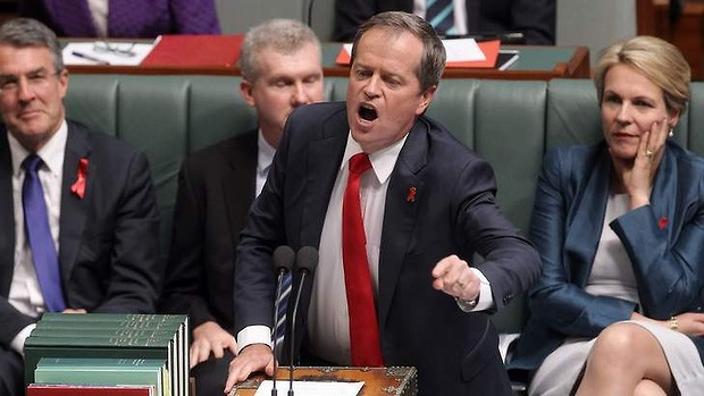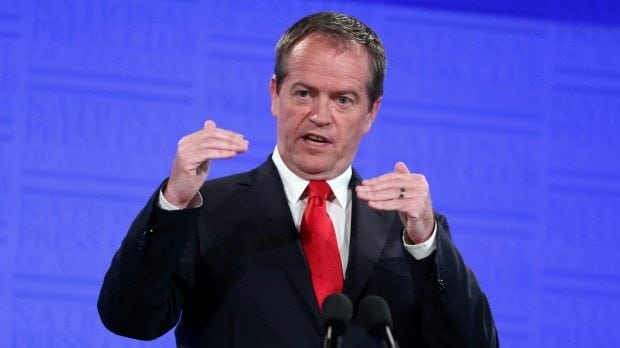Posts
Shorten attacks government’s retro super changes
/in Financial, Superannuation, Tax /by Always FinancialFederal Opposition Leader Bill Shorten used his budget reply speech to label the government’s superannuation changes as “retrospective” and reaffirm labor’s election policy on the $2 trillion industry.
The government announced a $500,000 lifetime cap will be applied to after-tax concessions on superannuation as part of the wider agenda to slow retirement savings being purely wealth accumulation for higher income Australians. The measure will include contributions backdated to 2007.
Shorten called out this retrospective view, yet also used his budget reply to accuse the government of pinching Labors superannuation ideas.
“Labor will gladly support our own clear and costed policy to close the unsustainably generous superannuation loopholes at the very top end. We welcome the fact that, three years after they voted to abolish Labor’s low-income superannuation contribution the Liberals have decided to keep it and simply rename it,” Shorten said.
He added the government was dangerously undermining super by claiming 4% of Australians in the super system will be affected by a budget change. He also took a shot at the government’s proposal to remove regulations that restrict people between 65 and 75 from making contributions to their superannuation.
“Labor will never apologise for standing up for Australians who go to work every day and want to come home safe, who rely on penalty rates to make ends meet, who do not want to be forced to work until they are 70,” Shorten said.
Shorten further announced a range of measures that would see $71 billion of “additional budget improvements over the decade.”
Labor still proposes a 25% tax cut for small businesses with a turnover of less than $2 million a year and delivering 50% renewable energy by 2030. It also backs its plans to “turbocharge” Infrastructure Australia with a new $10 billion funding facility, ” a concrete bank to get investment from the private sector, particularly big super funds, flowing into projects.” Labor says their infrastructure projects would add 26,000 jobs.
Labor is not supportive of budget measures that give the richest 3% of Australians another tax cut and reducing the marginal tax rate for individuals who earn more than $180,000 a year.
[via FINANCIAL STANDARD]
Advisers not impressed with budget changes
/in Budget, Financial, Superannuation /by Always FinancialMore than 50% of advisers believe that the federal budget will have a negative impact on their clients but agree that it will drive and increase in the need for advice, according to a survey from Midwinter.
The survey garnered responses from 103 Australian advice practitioners to develop an understanding of the planning industry’s initial responses to this year’s budget and how they believe their clients will be affected.
The majority 87.3% of respondents, said that they felt negative towards the proposed lifetime cap for no-concessional contributions of 500,000 and a further 86.4% said they felt negative toward the proposed lowering of the concessional contributions cap to $25,000. the removal of the TTR pension tax exemption was also unpopular; with a 73.5% of respondents saying it will negatively impact their clients.
Advisers did concede that the increased complexity of the superannuation system may drive more demand for advice, with 51% of respondents believing there will be an increase in people seeking advice. The introduction of the catch-up concessional contributions over a five-year period also gained support from advisers with 76.5% of respondents regarding it as a positive change from a planning perspective.
The survey revealed super splitting with a spouse, insurance bonds and spouse rebates as the top three strategies advisers will look to use to combat the proposed changes to superannuation, citing the 1.6 million cap as a major driver to implementing lesser used strategies.
[via Financial Standard]
Super to fund Aussie infrastructure: Shorten
/in Financial, Superannuation /by Always Financial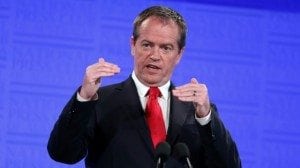 Federal opposition leader Bill Shorten has made it no secret he will look to Australia’s superannuation industry to unlock billions in capital investment for key infrastructure projects.
Federal opposition leader Bill Shorten has made it no secret he will look to Australia’s superannuation industry to unlock billions in capital investment for key infrastructure projects.
Unveiling Labor’s infrastructure plans at a Queensland Media Club event last night, Shorten said the predicted $4 trillion in super savings by 2025 should be put to “work on nation-building.”
The plan is to have Infrastructure Australia backed by a $10 billion funding facility that deploys equity to jumpstart new projects. In turn Infrastructure Australia “would transfer its equity or debt interests to long term investors such as super funds to maximise the return to the Commonwealth and so that capital can be recommitted to new projects.”
It is a plan that federal treasurer Scott Morrison said “has some merit.” In an interview on Melbourne radio yesterday, Morrison said productive infrastructure was one of the key things needed to grow the economy.
“Now, these are interesting ideas, any idea though is only ever going to be as good as its implementation. So, while I think there is some merit in what he [Shorten] is putting forward at the end of the day what has to happen is you have got to find projects that actually can pay a return. I mean it’s not grandfathering, they’re not just going to hand it out and give it to the states to build infrastructure,” Morrison said.
“So, the projects he has talked about aren’t made possible by this, they would have to satisfy a test to see whether they will make money and that means someone is going to have to pay a toll, someone is going to have to pay a fare.”
Shorten said in his speech that Labor will elevate Infrastructure Australia to an active participant in the infrastructure market, “mobilising private sector finance, Australia’s superannuation industry and international investors to bring a national pipeline of investment online.”
“We have a deep pool of domestic capital in superannuation as well as significant global investors that are searching for stable and reliable assets to invest funds over extended periods,” Shorten said.
Infrastructure Australia has estimated that the economic cost of underinvestment is projected to reach $53 billion a year by 2031.
[via Financial Standard]
FoFA among top 20 global regulatory nightmares
/in Financial /by George SovechlesThe Future of Financial Advice (FoFA) reform is one of the 20 most challenging pieces of regulation globally, according to a survey of 600 compliance professionals across the world.
The ‘Cost of compliance 2015’ report by Thomson Reuters asked compliance professionals from financial services firms all over the world to name the regulation that poses the greatest challenge for the coming year.
FoFA was listed along major regulatory changes such as the Basel III rules that will require banks to hold more capital, or the Volcker Rule in the United States that limits the bank’s relationships with hedge funds and private equity funds to prevent them from making speculative investments.
The US Dodd-Frank Act, a major regulatory reform following the GFC that has been compared to FoFA, is also listed among the most difficult regulatory challenges.
However, the UK’s equivalent piece of legislation, the Retail Distribution Review (RDR) was not part of the list.
The research also found that compliance officers are experiencing “regulatory fatigue and overload in the face of snowballing regulations.”
As many as 70% of the firms are expecting regulators to publish “more” regulatory information in the next year and 28% expect that the increase will be “significantly more.”
More than a third of the firms surveyed spend at least a whole day every week tracking and analysing regulatory change.
“Global regulatory change is creating the biggest challenge due to inconsistency, overlap and short time frames,” the report said.
“Understanding regulators’ expectations and requirements and being able to interpret and apply them is as great a challenge as keeping abreast of the changes.”
As a consequence, regulatory risk and costs are both expected to rise in 2015, with 68% expecting the compliance budget to be slightly or significantly higher than today in 12 months’ time.
[via Financial Standard]
 How to solve a problem like TPD?June 15, 2017 - 4:02 pm
How to solve a problem like TPD?June 15, 2017 - 4:02 pm Platinum backs Internet stocks and Asian infrastructureJanuary 27, 2015 - 8:56 am
Platinum backs Internet stocks and Asian infrastructureJanuary 27, 2015 - 8:56 am More Australians to invest in ChinaJanuary 27, 2015 - 8:57 am
More Australians to invest in ChinaJanuary 27, 2015 - 8:57 am AMP posts 32% increase in profitFebruary 23, 2015 - 1:12 pm
AMP posts 32% increase in profitFebruary 23, 2015 - 1:12 pm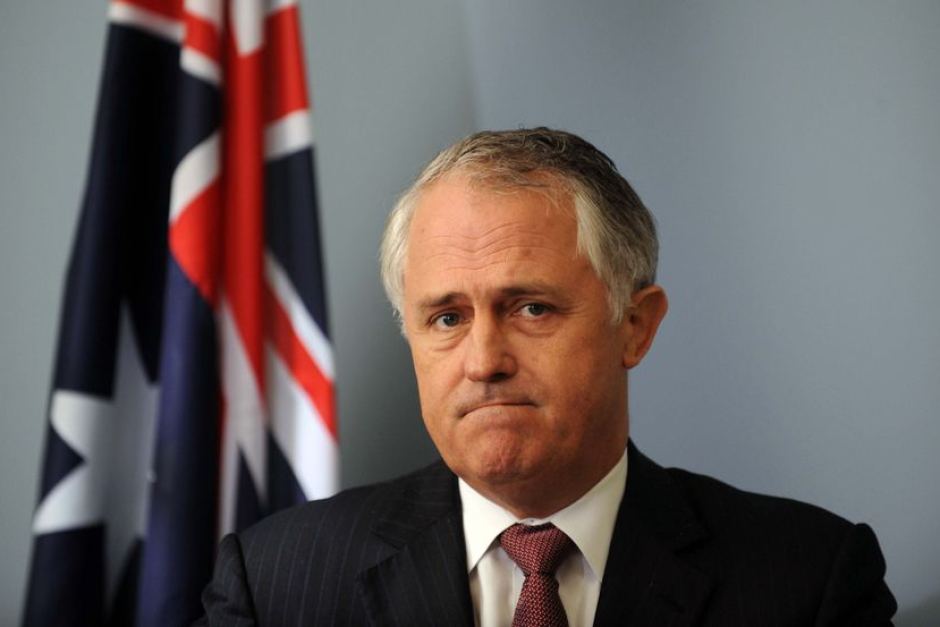 Home buyers accessing super “a thoroughly bad idea”...March 23, 2015 - 1:29 pm
Home buyers accessing super “a thoroughly bad idea”...March 23, 2015 - 1:29 pm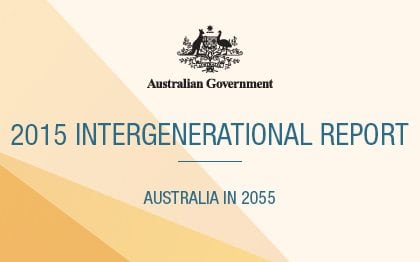 Economic growth to slow significantlyMarch 28, 2015 - 1:51 pm
Economic growth to slow significantlyMarch 28, 2015 - 1:51 pm
 How to solve a problem like TPD?June 15, 2017 - 4:02 pm
How to solve a problem like TPD?June 15, 2017 - 4:02 pm ETP demand grows, fees stableJune 15, 2017 - 2:15 pm
ETP demand grows, fees stableJune 15, 2017 - 2:15 pm AMP modifies insurance offeringJune 14, 2017 - 1:20 pm
AMP modifies insurance offeringJune 14, 2017 - 1:20 pm Education key in combating elder financial abuseJune 13, 2017 - 12:51 pm
Education key in combating elder financial abuseJune 13, 2017 - 12:51 pm Value of advice still unclear: IOOFJune 12, 2017 - 11:51 am
Value of advice still unclear: IOOFJune 12, 2017 - 11:51 am Super funds return 2.9%November 28, 2016 - 11:34 am
Super funds return 2.9%November 28, 2016 - 11:34 am
Client Portal
Level 2
496 Hunter Street
Newcastle, NSW, 2300
PO Box 364
Newcastle, NSW, 2300
Financial Services & Credit Guide
Privacy Policy

ACN 101 927 413
trading as Loyalty Financial Services
ABN 93 276 492 792
Australia Financial Services License 227096

